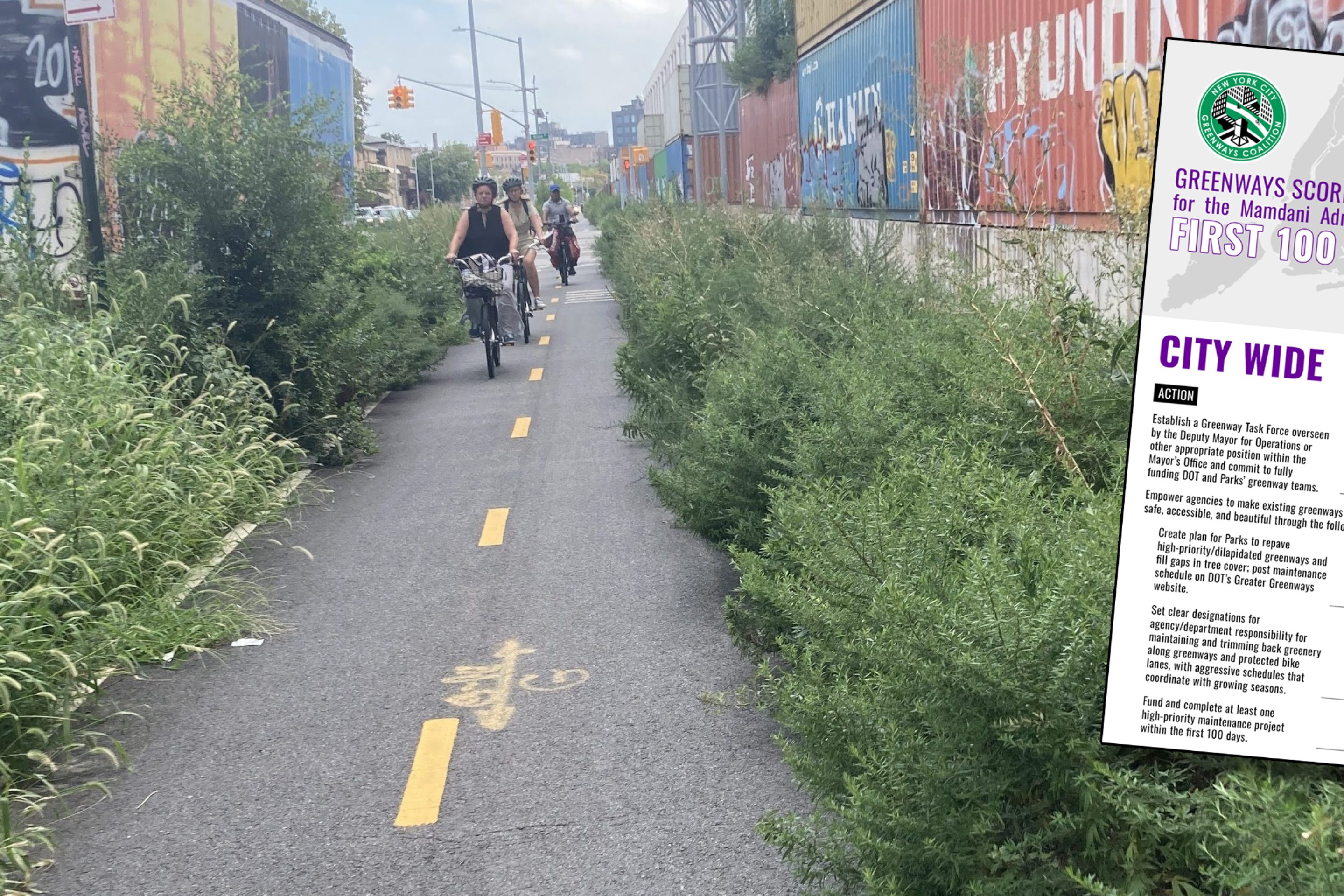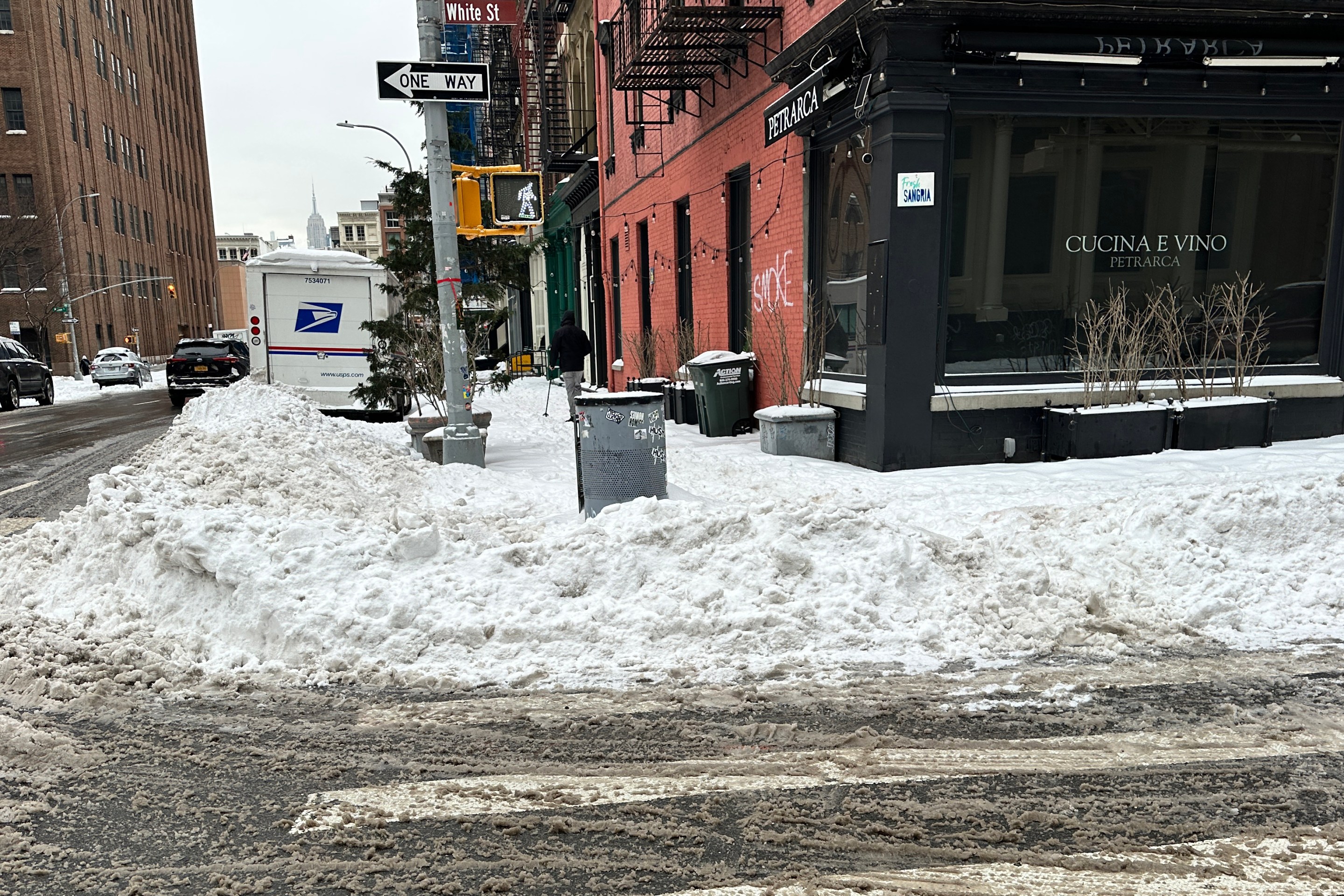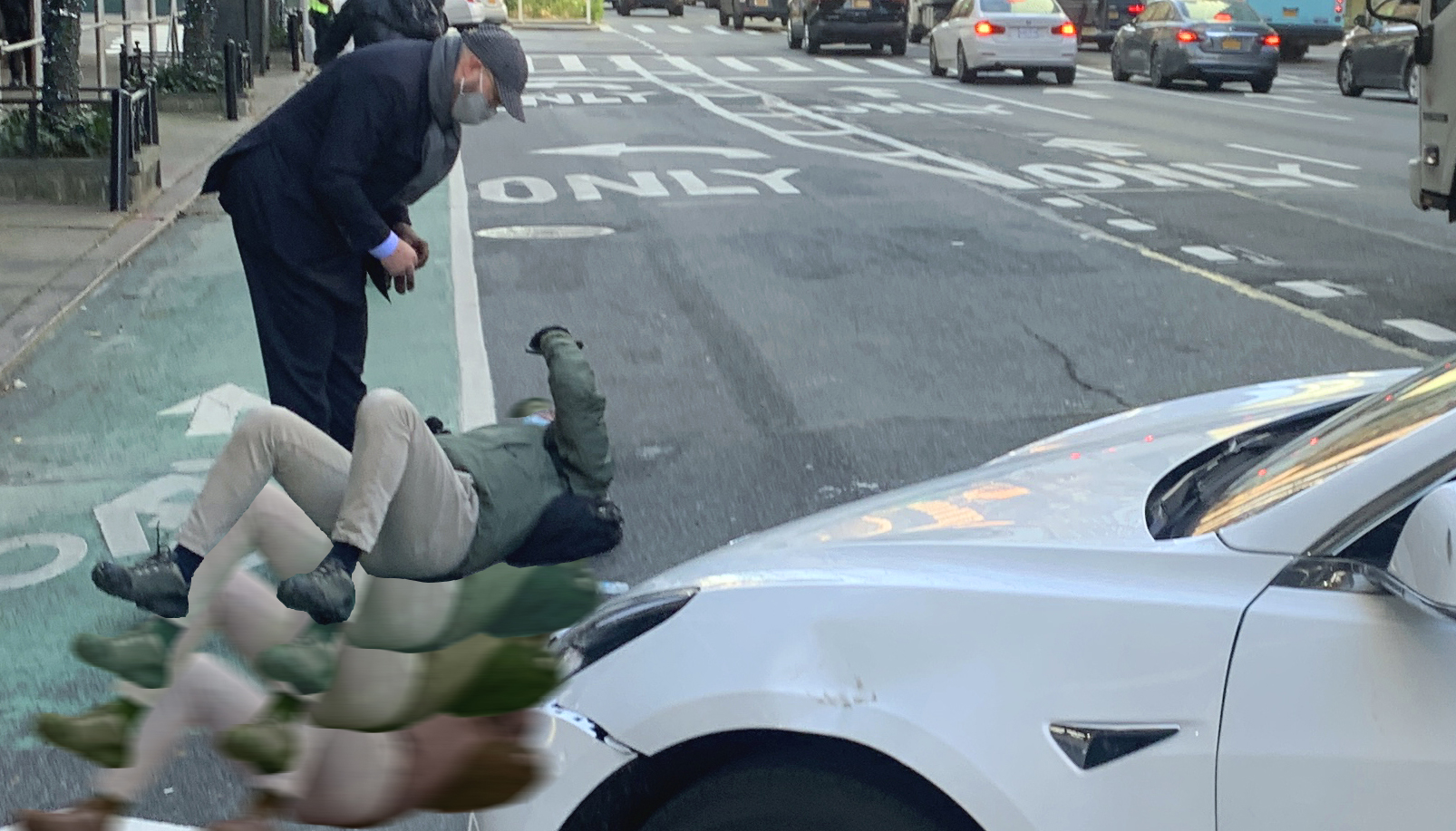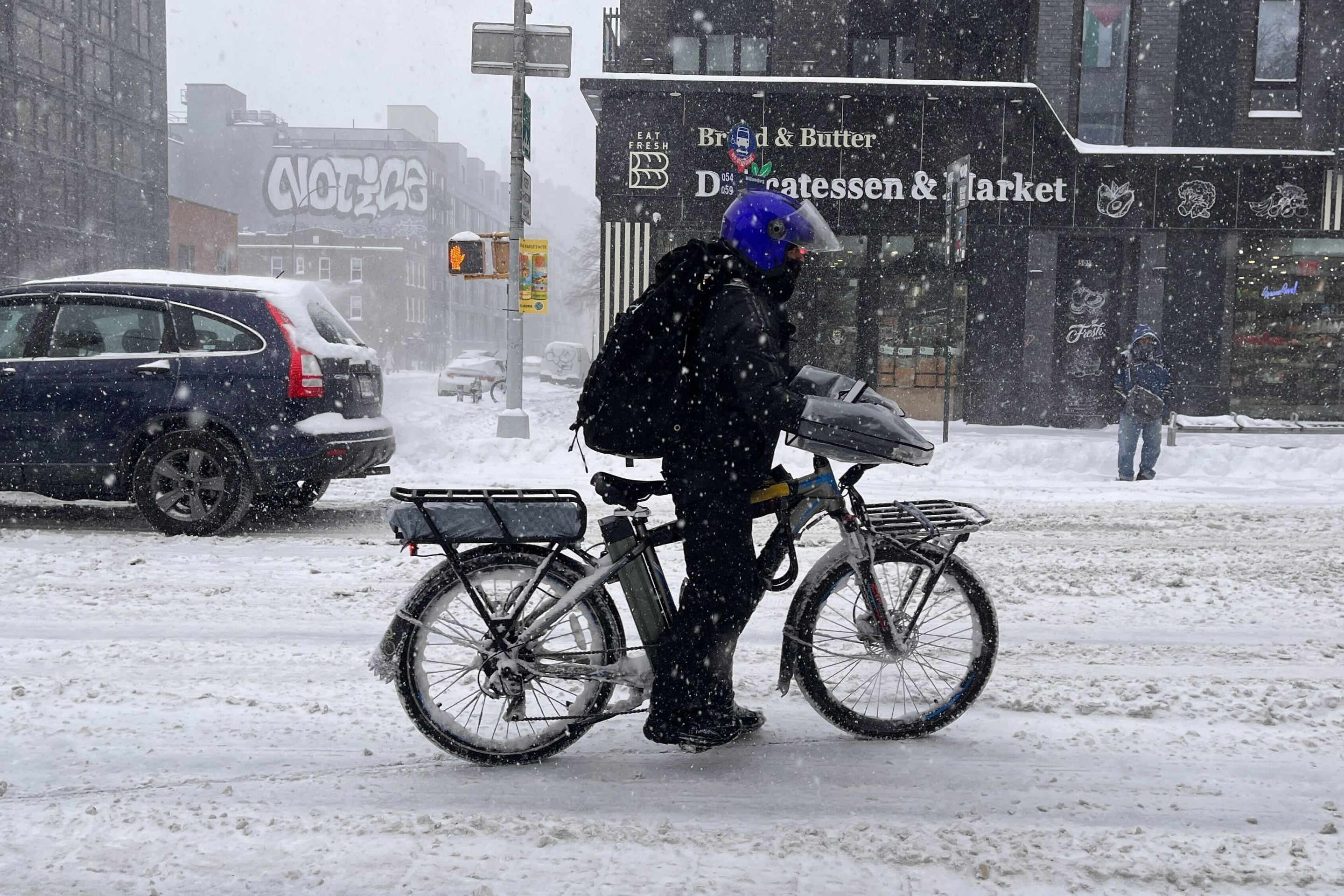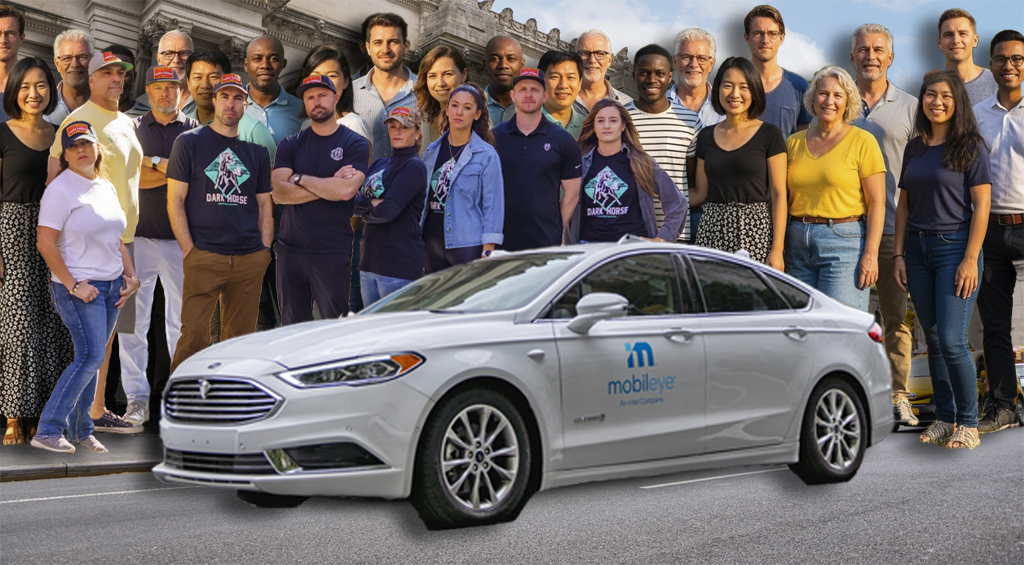For an investigation published this weekend, the New York Times calculated that governments in New York state give away at least $4.06 billion in corporate subsidies every year. In New York City, the agency that oversees much of this largesse is the Economic Development Corporation. And when it comes to shaping city fabric, NYC EDC has a predilection for showering its subsidies on a specific type of project: the kind with tons of parking.

So when Comptroller John Liu suggested at a mayoral candidates forum last week that all business subsidies should be eliminated, along with the city's Industrial Development Agency (the arm of EDC that oversaw the Yankee Stadium garage debacle, among other things), he struck on an idea that could do a world of good for NYC's walkability.
EDC has a hand in many things, from training small business start-ups to encouraging the installation of solar panels, but its biggest imprint on the city comes from large-scale real estate development and financing deals that shape the built environment. EDC projects like the parking-saturated Gateway Center in the South Bronx are completely out of step with the Bloomberg administration's professed intent to reduce greenhouse gas emissions.
While NYC DOT has helped carry out the city's sustainability goals by redesigning city streets to enhance walking, biking, and transit, EDC has continued to insist on a car-oriented development strategy that produces large volumes of parking and hostile streets for walking. "The worst thing we could do," EDC President Seth Pinsky told Streetsblog in 2010, "is create projects that create a parking need and then not provide that parking."
Because EDC's primary focus is on brokering business deals, said Hunter College city planning professor Tom Angotti, it's common for EDC's goals not to align with other administration environmental or transportation priorities. "EDC operates relatively independently," he said, and it "isn't subject to the same kind of sunlight that other agencies are."
So far, Liu is the only mayoral candidate seeking to end EDC business subsidies entirely. But even if EDC continues to offer development subsidies in the next administration, there are ways to better target the incentives so they meet broader goals.
City Council Member Brad Lander, who sits on the economic development committee, told Streetsblog that he wants more rigorous requirements -- including transportation benchmarks -- if the city continues to subsidize development. "The Community Redevelopment Agency of Los Angeles has a whole series of criteria for sustainability," Lander said. "I would like EDC to have similar set of standards and guidelines to what the CRA/LA has, including a broad set of transportation issues, such as maximizing use of public transportation."
There's a compelling case to be made that EDC's eagerness to subsidize parking is harming the city, and that the next mayor should reform the agency. Take a look at this by-no-means-comprehensive list of how EDC has spent millions to build more parking, often for no other discernible reason than to distribute political spoils:
- Yankee Stadium parking: EDC approved the business plan for parking garages around the new stadium, arranging $237 million in tax exempt bonds to build nearly 4,000 parking spaces on what used to be parks. When the spaces went empty during Yankees games, the garage operator began racking up back rent and unpaid interest before eventually defaulting on the bonds entirely.
- Greater Jamaica Development Corporation parking: A politically-connected local development non-profit scored a bunch of incentives to finance its 2,000 space parking garage, including $13 million in tax-exempt bonds arranged by EDC. As icing on the cake, the city's Finance Department decided that the garage didn't have to pay property taxes.
- Moisha’s Discount Supermarket parking: EDC arranged $2 million in tax breaks for this Midwood supermarket to expand as part of a program to improve access to high-quality and affordable groceries. The politically-connected supermarket owners took the money to build 15,000 square feet of store space and 18,000 square feet of parking lot. The program cuts parking minimums for participating stores, but Moisha's built the extra parking anyways -- despite the fact that the program is designed to improve food access for people without cars.
- Funding Willoughby Square Park with parking: In Downtown Brooklyn, a new park isn't being paid for with city funds. Instead, EDC had a developer build a 694-space underground parking garage with a park on top.
- Seward Park Urban Renewal Area: As part of the long-overdue redevelopment of parking lots on the Lower East Side, EDC requested special permits for the construction of 500 underground parking spaces, pushing the project above the maximums allowed under the city's zoning code.
- Flushing Commons: Zoning required 700 spaces for a development project in Queens, but the project included more than double that -- 1,600 spaces -- because EDC required that the project replace public parking spaces already on the site.
- Preserving unused parking in Harlem: For a development site in Harlem containing a 450-space parking garage, EDC's request for proposals asked developers to "maintain as many parking spaces as possible," despite the fact that the garage was rarely filled to capacity.
- Building thousands of parking spots at the most transit-accessible place on Staten Island: The massive EDC-led waterfront development in St. George on Staten Island will replace every parking space currently on the site and add even more parking, bringing the total to 2,200 spaces. "We literally are putting every possible bit of parking on that spot that we can," the project's EDC-approved ferris wheel developer told Streetsblog.
- Lavishing taxpayer funds on FreshDirect: It isn't just parking that EDC cares about -- the agency also has a penchant for subsidizing traffic-intensive businesses. Liu cited the FreshDirect example specifically at the candidates' forum. A $128 million EDC subsidy deal to keep the grocery delivery service from moving its warehouse to New Jersey will end up bringing thousands of truck trips to the South Bronx, which already has one of the nation's highest asthma rates.
- Snuffing out the Sheridan Expressway teardown: After environmental and neighborhood advocates campaigned for years to remove a lightly-trafficked freeway stub in the Bronx and replace it with affordable housing and parkland, the city agreed to a comprehensive study. But the city abruptly ruled out the highway removal solely because of a flawed traffic analysis. The surprise decision was reportedly the product of horse-trading during EDC's drawn-out lease negotiations with wholesalers at the Hunts Point Produce Market, who opposed the highway removal.
